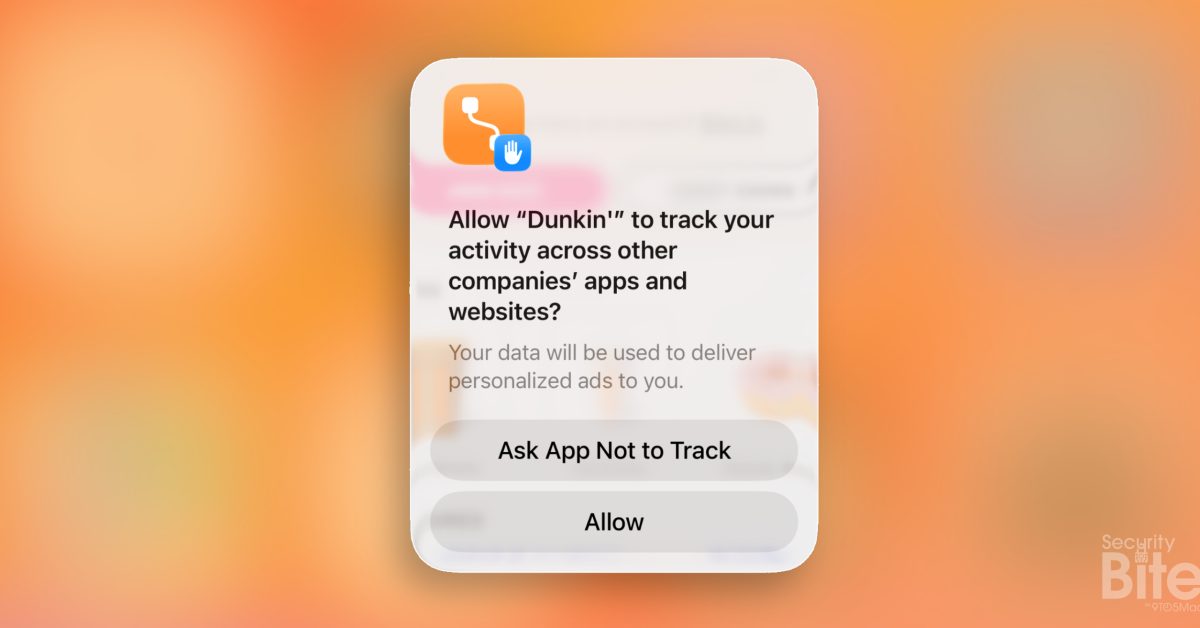
**9to5Mac Security Bite: Understanding App Tracking Transparency in 2025**
*Sponsored by Mosyle – The Only Apple Unified Platform*
Making Apple devices work-ready and enterprise-safe is all Mosyle does. Our unique, integrated approach combines state-of-the-art Apple-specific security solutions for fully automated Hardening & Compliance, Next Generation EDR, AI-powered Zero Trust, and exclusive Privilege Management with the most powerful and modern Apple MDM on the market.
The result? A totally automated Apple Unified Platform trusted by over 45,000 organizations to make millions of Apple devices work-ready effortlessly and at an affordable cost. Request your **EXTENDED TRIAL** today and discover why Mosyle is everything you need to manage Apple devices securely.
—
### What Is App Tracking Transparency (ATT)?
When Apple introduced App Tracking Transparency (ATT) prompts in iOS 14.5 back in 2021, it marked a watershed moment for user privacy within third-party applications. Until then, nothing like this existed.
ATT gave iPhone users control over whether their in-app data could be aggregated and shared with third parties for advertising or other purposes. Despite this major privacy step, there’s still some confusion online—people often question the wording and effectiveness of ATT, asking why Apple uses “Ask” instead of a stronger “Deny.”
Let’s take a brief look at how App Tracking Transparency works in 2025.
—
### How ATT Works
If you’re unfamiliar, Apple requires developers to get your permission before sharing your data with other companies.
After downloading a new app, you’ll typically see a pop-up asking:
**“Allow [App Name] to track your activity across other companies’ apps and websites?”**
You have two options:
– **Allow**
– **Ask App Not to Track**
Choosing **“Allow”** gives the app explicit permission to collect data such as your age, gender, location, usage patterns, purchase history, browsing habits, ad clicks, and more. This data is incredibly valuable to brokers who build detailed user profiles for targeted advertising.
Selecting **“Ask App Not to Track”** blocks the app from accessing your IDFA (Identifier for Advertisers), a unique code assigned by Apple to every iOS device. The IDFA enables companies to link your behavior across different apps. Without it, advertisers can’t correlate your shopping activity with your social media habits, for example.
This block happens at the system API level, making it difficult for companies to circumvent. However, developers may still track you through your IP address, phone number, or email if you’ve provided that information in the app.
This is why Apple uses the word **“Ask”** instead of an explicit **“Deny”**—it’s honest about the limits of what Apple can enforce. Apple cannot be sure if developers use alternative methods to track your data.
—
### Is App Tracking Transparency Still Effective?
The short answer: **Yes and no.**
Since ATT’s introduction, cross-app tracking has dropped dramatically. Before ATT, about 73% of U.S. users were trackable by advertisers. Today, that number sits around 18%.
Companies like Meta—Facebook, Instagram, WhatsApp, and Messenger’s parent—took a significant hit, losing an estimated $12.8 billion in 2022 alone.
However, advertisers are not giving up on the world’s most lucrative mobile platform. Instead, they’ve gotten creative.
– **Device Fingerprinting:** Once a secondary, underground technique, device fingerprinting has exploded on mobile. It collects details like screen size, OS version, time zone, and more to identify devices without using IDFA.
– **Contextual Advertising:** Apps have shifted to tracking within their own environments rather than across multiple apps, focusing on user behavior inside the app itself.
While these methods are less effective than IDFA-based tracking, the data they gather still sells for big money to ad networks.
—
### The Bottom Line
App Tracking Transparency has successfully cut cross-app tracking significantly since its inception. It hasn’t eliminated tracking but made it harder and more expensive for advertisers—exactly what Apple intended.
—
### More in Security
– This old-school alias trick will show you who’s selling or leaking your email
– What happened to cross-platform E2EE for RCS messaging that Apple promised?
– Mac users are finally taking malware seriously, per new report
– WhatsApp will now warn scam victims against screen-sharing bank details
– DHS says Chinese criminal gangs made $1 billion from U.S. text scams
—
*This 9to5Mac Security Bite is brought to you by Mosyle – making your Apple devices secure and enterprise ready.*
https://9to5mac.com/2025/10/25/security-bite-does-ask-app-not-to-track-actually-work/





